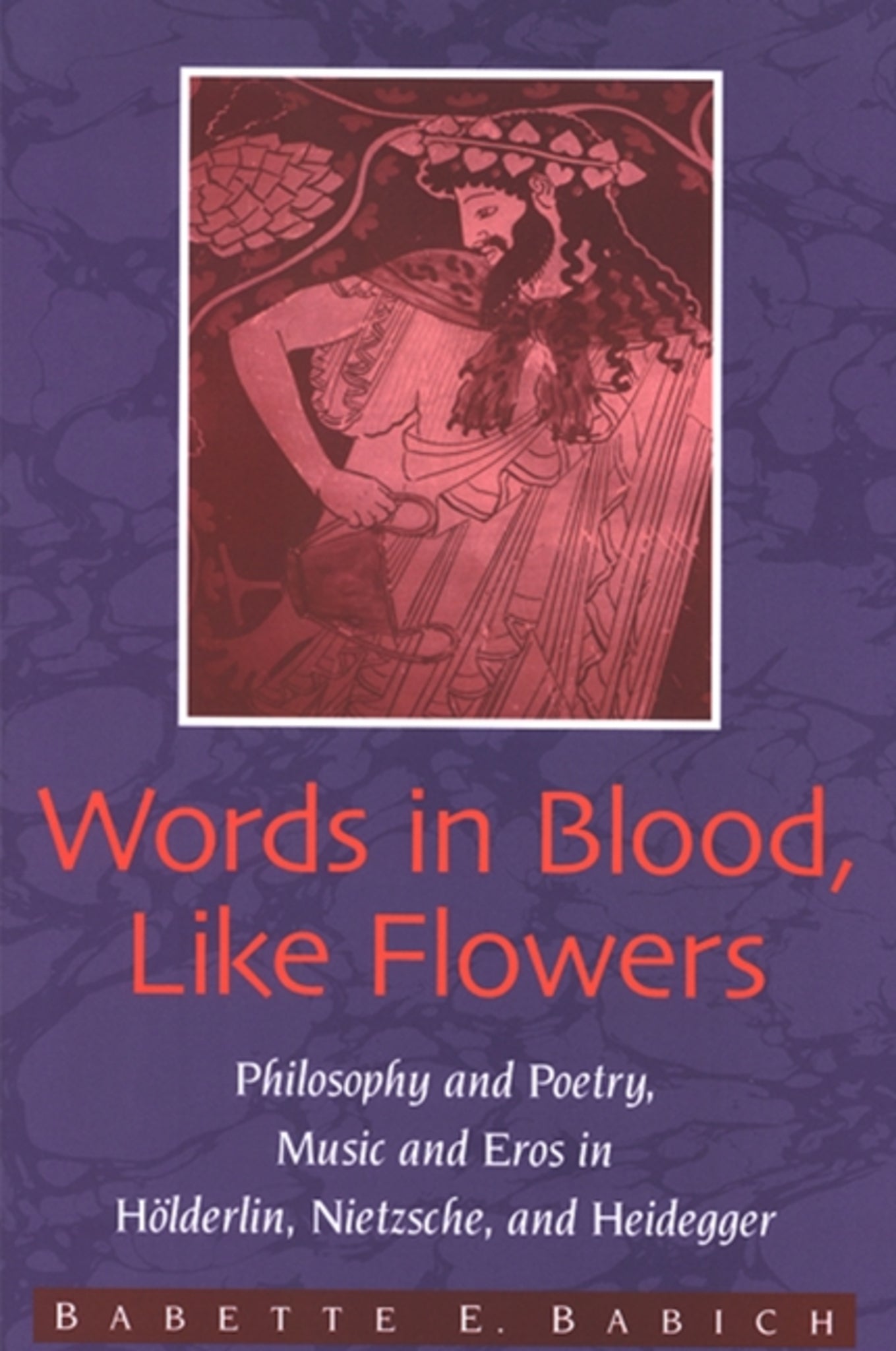We're sorry. An error has occurred
Please cancel or retry.
Words in Blood, Like Flowers

Some error occured while loading the Quick View. Please close the Quick View and try reloading the page.
Couldn't load pickup availability
- Format:
-
12 October 2006

A philosophical exploration of the power that poetry, music, and the erotic have on us.
Why did Nietzsche claim to have "written in blood"? Why did Heidegger remain silent after World War II about his participation in the Nazi Party? How did Hölderlin's voice and the voices of other, more ancient poets come to echo in philosophy? Words in Blood, Like Flowers is a classical expression of continental philosophy that critically engages the intersection of poetry, art, music, politics, and the erotic in an exploration of the power they have over us. While focusing on three key figures-Hölderlin, Nietzsche, and Heidegger-this volume covers a wide range of material, from the Ancient Greeks to the vicissitudes of the politics of our times, and approaches these and other questions within their hermeneutic and historical contexts.
Working from primary texts and a wide range of scholarly sources in French, German, and English, this book is an important contribution to philosophy's most ancient quarrels not only with poetry, but also with music and erotic love.


Preface
Acknowledgments
Abbreviations
Illustrations
PHILOSOPHY, PHILOLOGY, POETRY
1. Philosophy and the Poetic Eros of Thought
2. Philology and Aphoristic Style: Rhetoric, Sources, and Writing in Blood
3. The Birth of Tragedy: Lyric Poetry and the Music of Words
4. Nietzsche’s "Gay Science": Poetry and Love, Science and Music
5. Pindar’s Becoming: Translating the Imperatives of Praise
MUSIC, PAIN, EROS
6. Philosophy as Music
7. Songs of the Sun: Hölderlin in Venice
8. On Pain and Tragic Joy: Nietzsche and Hölderlin
9. Nietzsche’s Erotic Artist as Actor/Jew/Woman
ART, NATURE, CALCULATION
10. Chaos and Culture
11. The Ethos of Nature and Art: Hölderlin’s Ecological Politics
12. The Work of Art and the Museum: Heidegger, Schapiro, Gadamer
13. The Ethical Alpha and Heidegger’s Linguistic Omega: On the Inner Affinity Between Germany and Greece
14. Heidegger’s Beiträge as Will to Power
Notes
Bibliography
Name Index
Subject Index



